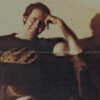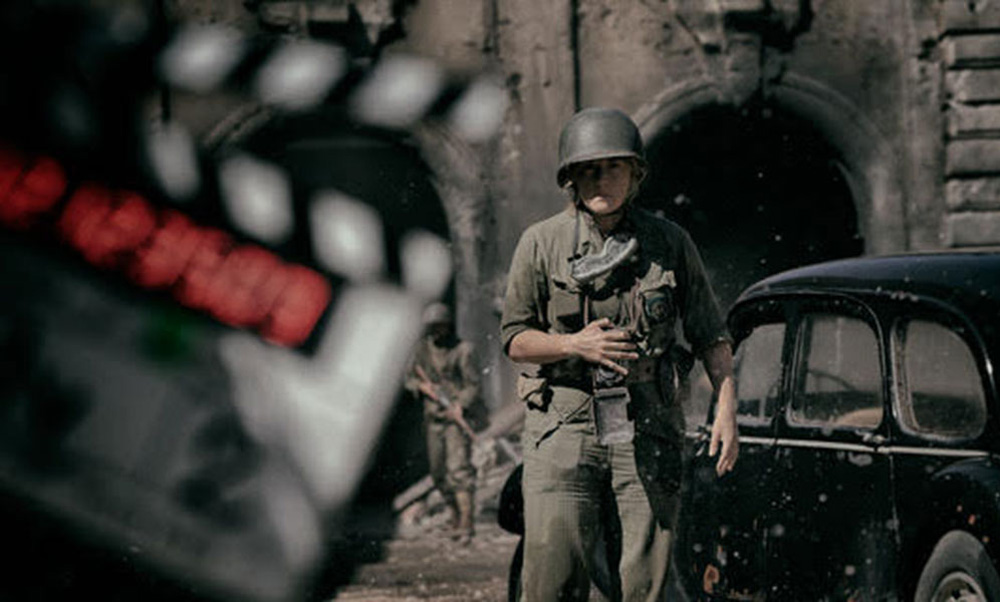“I was good at having sex, drinking and taking pictures,” Lee Miller (Kate Winslet) tells an interlocutor (Josh O’Connor) at her home at Farley Farm House near the end of her life in “Lee,” not needing to add that she did none of this in moderation when you can hear it in her voice. It’s difficult not to think that director Ellen Kuras isn’t telling her own life story to some degree in making a film about the war photographer for Vogue, not necessarily in the details or the debauchery, but having an unquenchable lust for life that she found a suitable profession as a cinematographer who’s traveled the world over shooting for Michel Gondry and Spike Lee. (While this is her narrative debut, her first feature as a director “The Betrayal – Nerakhoon” told of the Laotian people in the aftermath of the Vietnam War over the course of two decades, and has strong parallels to the work Miller did during World War II.) Not only does Kuras have an understanding of why Miller saw her camera as a passport after first being a model, but brings a passion to telling her story akin to what drove her subject.
While “Lee” has all the markings of a modern traditional biopic, with Miller sitting down to seemingly recount her life for a journalist, it’s pretty evident early on it’s something different when O’Connor only comes back sparingly and her version of events starts with a summer lunch in a garden in France where half the women sit topless in mixed company, so carefree is the atmosphere. When its lead character lives in the moment, “Lee” is never made to feel as if it’s ever looking back, wasting as little time seducing an audience as a potential suitor Roland (Alexander Skarsgaard) does with Lee, making a point of hopping into bed together a little less than four hours after they’ve first met in the French countryside. The impulsiveness comes to be a defining quality of Miller’s and brilliantly used by co-writers Liz Hannah, Marion Hume and John Collee to undercut the medium’s tendency to deify its subjects without suggesting she’s a hedonist, either. She is, however, a thrill seeker, which is why she moves to England with Roland rather than stay in France as friends Solange (Marion Cotillard) and Nusch (Noemie Merlant) would hope, which places her in prime position to take photos of the London Blitz of 1940 and a desire to capture what’s happening on the front lines for Vogue magazine.
Miller, in fact, did snap some of the most defining images of the war and its aftermath, forming a partnership with Life Magazine photographer David Sherman (Andy Samberg, in a bit of inspired casting) to film scenes from the battlefield and eventually former concentration camps. However, “Lee” only shows a handful, instead illuminating what the photographer wanted from them as she’d take pictures of the most vulnerable or least respected members of the army to make sure their place in history is remembered. While fighting for the right to take them and get them published seems to be more daunting than dodging bullets in the heat of battle, the film is admiring of Miller in less obvious ways than her resolve, and occasionally critical, showing the time it takes for her to realize that her work is making a real impact, as well as how she can pick up and leave at a moment’s notice, only somewhat conscious of who or what she’s leaving behind. For a film in which Winslet plays the part with real moxie, the nuance is impressive even as the film plays as bold and spirited as its title character went about her life and as a portrait, capable of leaving an impression as much as her work.
“Lee” will screen again at the Toronto Film Festival on September 11th at 5:30 pm at the Scotiabank 1.




